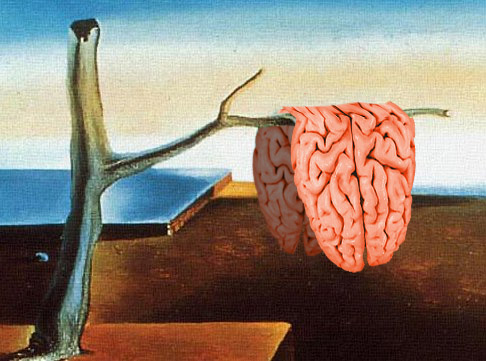Seems like the subject of cognitive distortion is coming up a lot recently. That’s a term used by psychologists to describe a pattern of flawed, inaccurate processing of information, which leads to erroneous conclusions. It happens not only at the level of thinking and belief, but of perception itself. Though it’s not abnormal behavior, it’s frequently a component of various psychological disorders.
Cognitive distortion is how we explain why, when supporters of two opposing sports teams examine the same video of the same penalty calls made during the same game, they somehow come to the conclusion that the refs were absolutely, positively biased in favor of the other side.
And the tape, they will insist, simply proves it.
I don’t know how many times over the years I’ve listened to family members cite examples of a loved one’s drinking problem only to hear the drinker interpret the same events as proof positive that he doesn’t have a problem. It can be quite confusing. I come away wondering if they truly belong to the same family.
I happened on an interview with Bob Woodward about his recent best-seller Rage, about the Trump presidency. Near the end the author confessed that after all those hours spent listening to the President hold forth on various subjects with surprising candor, Woodward still wasn’t entirely certain that Trump always knew what was real and what was not.
I know how that feels. On some level, what you’re hearing makes sense, and yet, once away from the speaker, doubts creep in. You know that contradictory evidence exists, plenty of it, that undermines what you’ve heard from the other person (in my case, usually a client).
What to believe?
Where alcohol is involved, the distortions usually center around drinking and its many consequences. For instance, the corporate attorney referred by his Board because he’d arrived in Court visibly intoxicated. Nevertheless he spent a solid hour in my office insisting that his drinking was directly caused by a faulty air conditioning system in his new car. He repeatedly challenged me to prove him wrong. I wasn’t naive enough to try.
Or the poor fellow in Detox who blamed his alcoholic jaundice on a job several years earlier, working in a paint factory. Or the police officer who claimed the vial of crack that fell out of his uniform pocket had actually been planted there by a hostile defense attorney. Again came the challenge: “you weren’t there, you can’t know.” True, but that’s not really the issue.
Paranoia is a classic example of cognitive distortion. Asked by a nurse why he believed he was under police surveillance, a meth patient offered video proof of the same few vehicles outside his apartment each evening. “It’s a parking lot,” the nurse objected. “They probably live there.”
Or perhaps that’s what they want us to think, he replied.
In Trump’s case, it’s definitely a challenge. On the one hand, he favors the vague accusation that lacks the clarity needed for someone else to draw a valid conclusion. It’s a form of minimizing, common among those seeking to explain away the adverse consequences of substance use. Minimizing is a classic way for someone with a problem to dismiss the need to change.
Cognitive distortions can also occur on a mass level, most recently with the QAnon conspiracy theory. Here’s one professional’s take on the psychology behind that:
The Pyschological Needs That QAnon Feeds
So when audio of Donald Trump makes it plain that in March he was aware of the dangers inherent in the spread of COVID-19, does that mean he was simply lying weeks later, when he promised the public it would fade quickly in the heat?
Quite probably. But was it an effort to deceive us, or himself?












